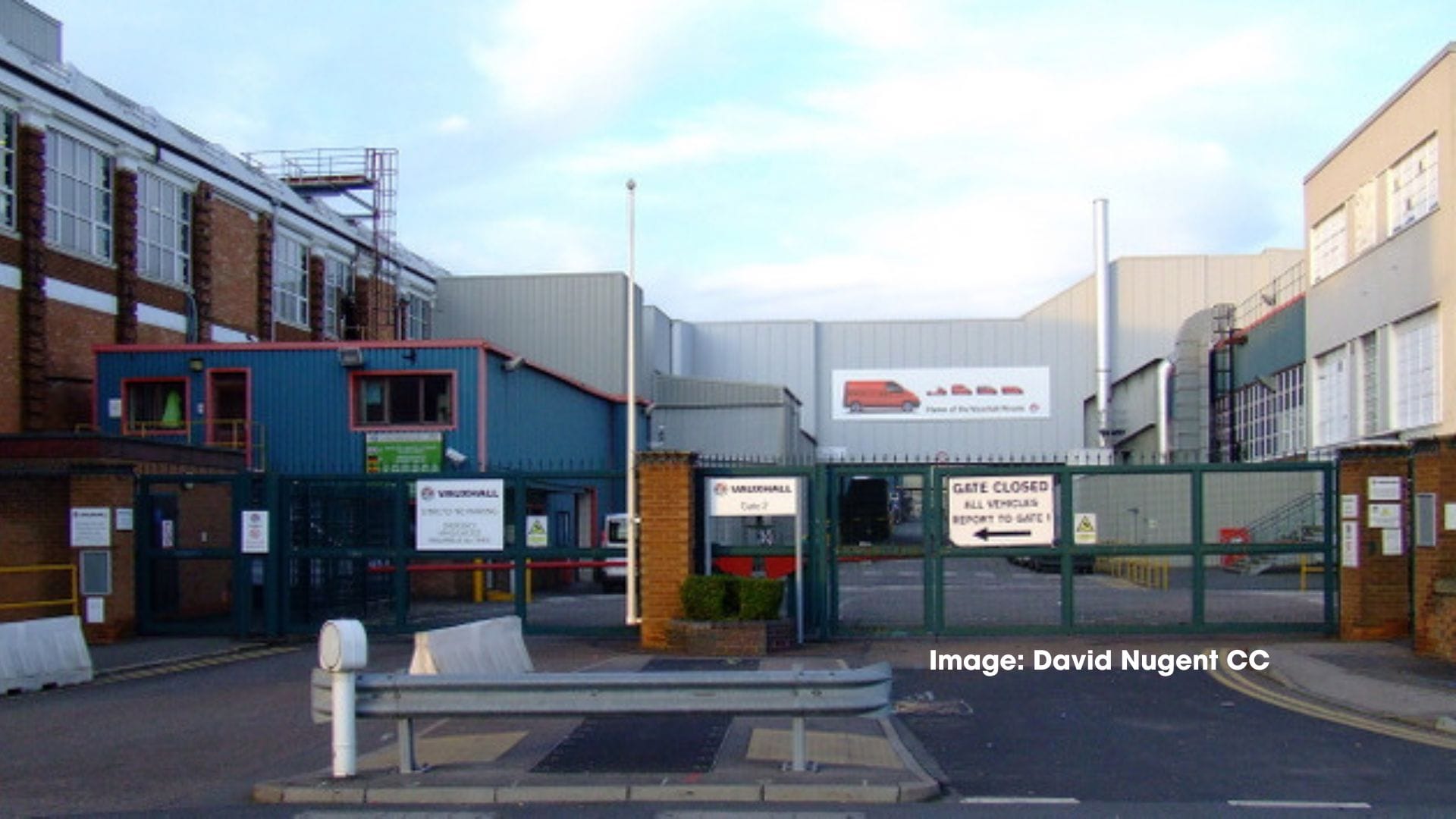Last week, Vauxhall van factory workers in Luton were suddenly told they’ll likely be losing their jobs this Christmas. Even the Grinch would blush at such a move.
1,100 workers are facing the chop, with another thousand auxiliary roles at risk.
The factory had been open for 120 years. It survived two world wars. But it could withstand the tragic decline of British capitalism, which has brought about a tsunami of industrial closures in recent years: from the jobs massacre at the Port Talbot steelworks; to similar threats at Grangemouth oil refinery and the Harland & Wolff shipyards.
Vauxhall’s parent company, Stellantis, has been quick to blame the UK government’s drive for increased zero-emission vehicle (ZEV) production, as well as Brexit trade barriers and the looming danger of tariff-wielding Donald Trump.
But don’t worry! While thousands of families will face a bleak winter, Stellantis’ newly-resigned CEO Carlos Tavares enjoyed a 60 percent pay rise – to a whopping £30 million salary – last year.
Car industry crashing
This closure is yet another tombstone in the cemetery of British industry, and of the British automotive industry in particular.

In the last 50 years, the proportion of British GDP generated from manufacturing has dropped from 30 percent to 9 percent. Between October 2023-24, car production alone dropped by 15 percent.
Despite cash injections from the government, the car industry continues to run on fumes. A similar closure of a Honda factory in Swindon in 2021 saw 3,500 jobs axed.
All across the world, the car industry is in a poor state. In Europe, Ford has ‘let go’ of 4,000 workers. Even Britain’s only independent electric battery manufacturer, Britvolt, went under in early 2023.
German automotive giant Volkswagen, meanwhile, is planning mass redundancies for the first time in its history, provoking enormous anger amongst their workforce.
Capitalist crisis
Manufacturing bosses such as Tavares complain that these closures are inevitable, so long as the EU and the British state do not subsidise electric vehicles to allow European and UK companies, respectively, to compete with rivals from the US and China.
But European and British capitalists are in no position to compete with the American and Chinese monopolies. The support that the British state can offer EV producers falls far behind what the EU hypothetically could provide, and what the US and China actually do.
At the same time, global markets are already glutted. With consumers’ budgets squeezed, demand for vehicles is slowing. Automotive companies are therefore struggling to sell what they already produce.
This is a reflection of the overproduction of cars – and key commodities – that is now endemic across the world economy, due to the anarchy of the capitalist market.
Each country wants to export their crisis abroad, by supporting their own national monopolies, raising protectionist barriers, and dumping excess produce on foreign markets.
And so far, unsurprisingly, the biggest imperialist powers like the US and China are managing to do this more effectively than weaker capitalist countries like Britain, France, and Germany.
The solution to this chaos does not lie with calls for more economic nationalism and state subsidies. This only syphons public money into the hands of the profiteering capitalist owners of the big manufacturers, with workers, consumers, and taxpayers footing the bill.
Instead, workers must meet the threat of industrial closures with the demand for nationalisation of these factories – without compensation and under workers’ control.
Rather than cutting costs, productivity should be improved by expropriating the capitalists and investing the industry’s profits into modernisation. And if cars cannot be sold, rather than slashing jobs and wages, workers must demand the shortening of the working day without loss of pay!
Anger boiling over
The human impact of this has all been immense. As one fired worker put it: “It’s not 1,000 people, is it? It’s 1,000 families.”
Labour’s manifesto promised to invest heavily into the automotive industry. But it doesn’t matter whether British industry’s tank is filled with petrol, diesel, or rocket fuel – the wheels are coming off!
Workers are not taking these attacks lying down, however. When Stellantis threatened similar closures in Italy, 40,000 automotive workers mobilised in a 24-hour national strike, including a 20,000-strong demo in Rome.
Here, workers must seriously consider the possibility of a factory occupation, as should have been carried out at Port Talbot, and at other industrial sites vandalised by the capitalists.
Just as the Industrial Revolution once propelled Britain to the peak of manufacturing, a socialist revolution is needed to jumpstart our flat-battery economy. Until then, we can expect to see more job massacres across the country.






